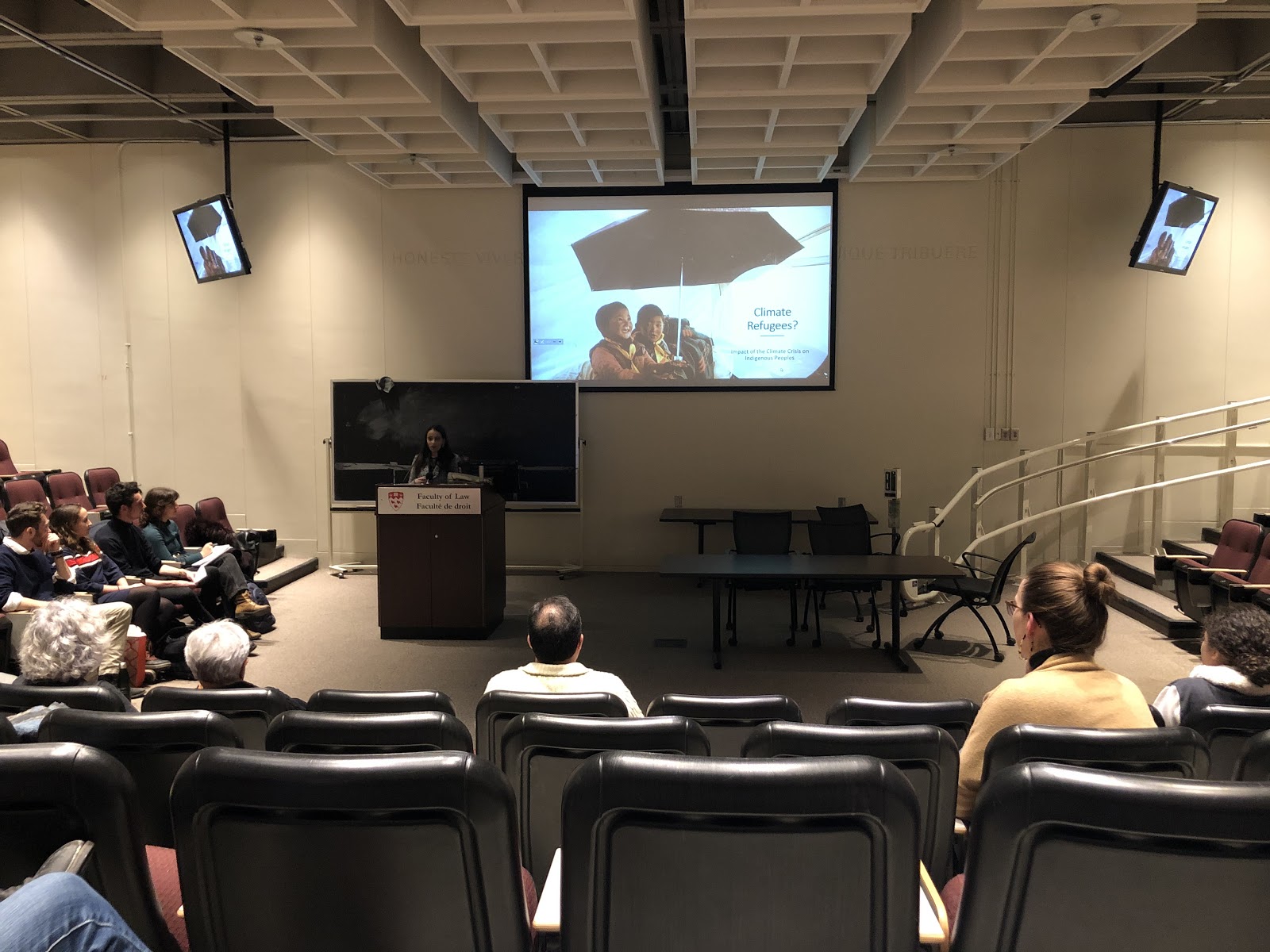The Indigenous Law Association de Droit Autochtone (ILADA) hosted a forum to examine how climate change affects Indigenous refugees in a legal context. On Jan. 15, keynote speaker Me Karina Kesserwan presented the talk to law students and other members of the McGill community.
ILADA is a student group that organizes events to promote an understanding of the legal obstacles faced by global Indigenous communities. Kesserwan, an expert on international Indigenous issues, is a co-founder of Kesserwan Arteau, a firm that focuses on Aborignal law.
Kesserwan argued that the relocation of displaced people diminishes the importance of their knowledge.
“Displaced people are often seen as standing in the way of development: We need to move them, because we need to progress,” Kesserwan said. “In the process of their removal, we deny the authority of their experiences on the land.”
Kesserwan proceeded to discuss the current conflict between the contemporary legal definition of a refugee under the 1951 Geneva Convention on Refugees and the existence of ‘climate refugees.’ Despite the subjectivity of the Geneva Convention’s definition—an approach that is uncommon to legal frameworks—it excludes people who are fleeing due to environmental phenomena.
“The definition of a refugee incorporates a well-founded fear,” Kesserwan said. “Laws do not often involve subjective feelings, since they are built on objective reason. [However], the definition, does not apply to ‘climate refugees.’ [One] cannot claim refugee status if their state has been destroyed or homeland is uninhabitable.”
In her presentation of the impacts of climate change, Kesserwan explained that the crisis’ effects add to the burden of vulnerable nations.
“The states disappearing because of climate change are not the states [that] are responsible for it,” Kesserwan said. “Very often, they are the states that do not have the means to protect themselves. We see that individuals lose their connection to culture and community, but we also see that entire nations lose their nationalities.”
Kesserwan also emphasized the need to involve the voices of Indigenous communities in conversations and legislation surrounding climate change.
“Indigenous people have the knowledge of how to work the land, so they have solutions for adapting to climate change, but are they being asked to contribute?” Kesserwan said. “For many years, we have not considered Indigenous knowledge to be knowledge.”
For Natalie Lloyd, U1 Arts & Science, the speaker’s emphasis on the loss of symbols and stories, rather than just land, presents the climate crisis from a different perspective.
“The loss of the right to self-determination often accompanies the loss of less tangible, yet equally significant, aspects of Indigenous culture, a thought that Kesserwan brought my attention to,” Lloyd said.
Alisha Atri, U3 Education, believes that non-Indigenous individuals are responsible for educating themselves about Indigenous issues.
“Unfortunately, our legal system and laws were created by colonizers and systematically allows the oppression of Indigenous communities to continue,” Atri said. “Non-Indigenous people have benefited from colonization and the oppression of Indigenous communities, past and present, so I think we have a responsibility to learn about these lasting effects and actively resist current forms of [injustice].”
Atri questioned the prospects of reconciliation with Indigenous peoples in the absence of institutional support.
“How do we, as settlers, reconcile with communities who’ve been forced to resettle, assimilate, and face the primary effects of climate change without any support from governments that are responsible for the climate crisis?” Atri said.







